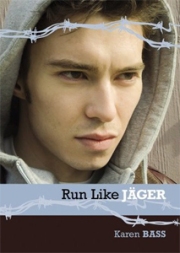
“Terminal Moraine”
Written by Ian LeTourneau
Published by Thistledown Press
Review by Shelley A. Leedahl
$12.95 ISBN 978-1-897235-53-9
In 2008, Thistledown Press celebrated the release of its 10th New Leaf Editions Series of poetry books by first-time authors, and what a celebration it was. At the launch — arguably among SK’s top literary events of the year — one of four poets on stage was Ian LeTourneau, a former Maritimer now living in Athabasca AB. With new book in hand, LeTourneau transported listeners with the unique music only a finely-tuned poem can make.
“Terminal Moraine” is a landmark book. It entertains and ferries readers to the “otherworld” poetry inhabits, but it could also be well-used in writing workshops, as LeTourneau’s poems have much to teach us. Reversals (ie: the tide, time, memory), renewals, and re-ordering predominate, but within these themes there exists great diversity in subject, tone, and form.
Aside from the free verse favoured by many contemporary poets, LeTourneau also incorporates sonnets, odes (ie: “Fireplace” and “Bicycle”), a paradelle, a triolet, and couplets. There are translations (from the French); poems inspired by other poets; by photographs; music; landscapes; family; and friends. More specifically, the found poem, “Wind Farm,” credits the “‘Canadian Wind Energy Association’ pamphlet” as a source. I love this. It demonstrates how poetry exists all around us; we need only be open to it.
Nature is integral in this work. Birds, bison, bear, squid, and muskox are at home among poems of place and personal philosophies. Look at the way this poet sees: in “A Cubist View of the Saint John River,” he writes of the river as “a factory of ice”. The poem “Ordinary Day at the Beach” — both about and not about barnacles — delivers “the shells in my hands like new words,\half-submerged in new meaning.” And in “Turtle”: “There is no place for us to retreat\except to the sea of ideas, and daily\the mind is trawling up more and more turtles”. Single images – “A sail pregnant with wind,” sky as “a nursery\of stars” — and sounds — “Gravel crunches like candles” – reveal that this young poet has a seasoned eye and ear.
I also admire the juxtapositions. In “Unidentified Birds,” the poet writes of black and white warblers: “They constantly escape\the two rings of my binoculars’ vision.\Like those nephews or nieces who fidget\out of photographs at weddings\or family reunions, they’re beyond my control.” A bowl of blueberries and ice cream becomes “Mountains\with a setting sun” and “decomposing butterflies.”
Jewels in this collection include “Silver,” and “Sleep,” two poems that in very few lines capture a simple grace; and “Kinds of Apple #9 (Golden Delicious),” which, like other pieces in this collection, is almost “painterly”.
There is a great deal to delight in here, from delicious words (ie: “supernovae,” “armamentarium,” “travertine,” “inglenook,” “proboscis,” and “velocopedes”) to thoughtful meditations on what it is to be human, and to bring another human – the poet is a relatively new father – into the “journey.” Broad, intelligent, resonant … LeTourneau’s “Terminal Moraine” and Thistledown Press prove that literary publishing in Saskatchewan is alive, well, and undeniably worthwhile.
THIS BOOK IS AVAILABLE AT YOUR LOCAL BOOKSTORE OR FROM THE SASKATCHEWAN PUBLISHERS GROUP WWW.SKBOOKS.COM
